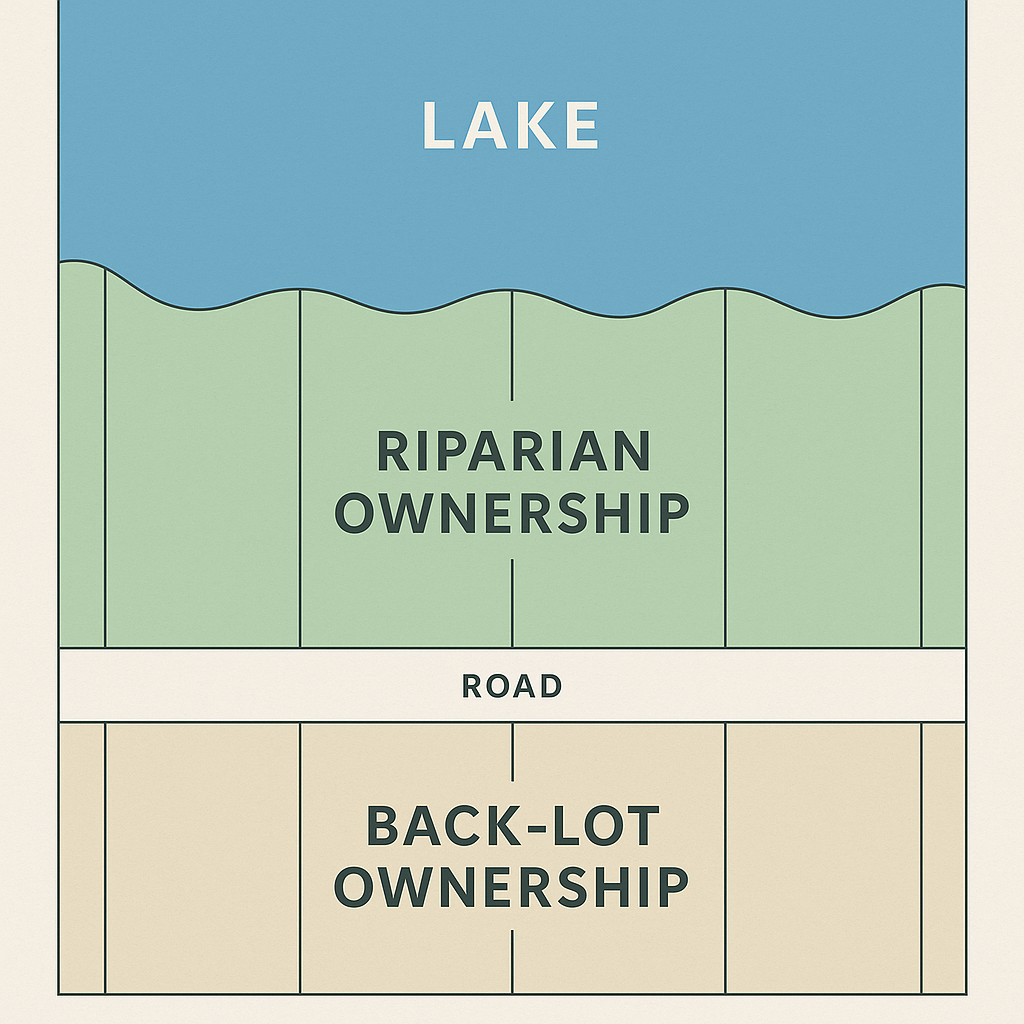Defining Riparian Rights in Michigan
When a property borders a natural waterbody in Michigan, the owner is granted a special set of rights that do not exist with landlocked property. These rights, known as riparian rights, are tied directly to the ownership of the shoreline.

Unlike ordinary property rights, riparian rights allow the landowner to make use of the water in ways that are considered both natural and essential to waterfront living.
Traditionally, “riparian” refers to land along rivers or streams, while “littoral” refers to land along lakes. Michigan courts, however, often use the term riparian broadly to cover both. These rights typically include the ability to walk directly into the water from your property, to build and maintain a dock or pier, to moor boats, and to enjoy the water for swimming, fishing, and boating.
Michigan riparian law is rooted in English common law and has been refined through decades of Michigan Supreme Court and Court of Appeals decisions. Because of this long legal history, riparian rights are treated as a form of property right — meaning they are constitutionally protected in much the same way as the land itself.
The Core Rights of Riparian Owners
Owning waterfront property in Michigan carries more than just scenic views. By law, it brings with it a bundle of rights that only riparian owners can exercise. These include the right to walk directly from your property into the water, the right to install and maintain a dock, and the right to use the bottomlands — the lakebed or riverbed — that extend outward from your shoreline. These rights make lakefront property uniquely valuable and are often at the center of disputes with neighbors, subdivisions, or local governments.
The law does not give riparian owners unlimited power, however. Michigan courts apply a reasonableness test to determine the scope of riparian use. A dock may be permitted, but it cannot extend so far that it interferes with navigation. A boat may be moored, but not in a way that blocks a neighbor’s access. This balance ensures that all riparian owners can enjoy the water without one landowner unfairly dominating the shoreline.
For property owners, the lesson is clear: riparian rights are robust but not absolute. Understanding the limits of “reasonable use” is critical to protecting your property while respecting the rights of others.